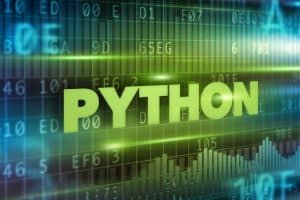Beginner Tips for Learning Python Programming Python is one of the most popular and highly-used programming languages. It’s a great choice for beginners because it’s easy to pick up, but it has plenty of power to satisfy seasoned developers too. If you’re new to programming, Python can be intimidating at first—it’s not as “natural” as other languages. But once you get started and have mastered some simple tasks, learning how to write programs in Python will be easier than ever before!
1. Start with Really Simple Tasks
- Don’t start with a big project
- Don’t start with a large codebase
- Don’t start with a complicated idea or problem. Instead, think about something that you could do in Python and how to execute it.
2. Change the Subject Matter for Each New Task
- Change the Subject Matter for Each New Task
You may be thinking, “I don’t want to learn all this new stuff.” But don’t worry! Python is a versatile language that can be used for many different purposes, so there’s no reason why you should stay in one place or limit yourself to one type of problem solving. In fact, as long as you have a good grasp on what it means to program and how to use variables properly (which we’ll discuss next), there are plenty of other exciting things you can try out! For example:
- You could write an application designed specifically for teaching children about numbers—the idea is that kids will play with some colorful blocks while they’re learning about addition and subtraction; when they’re done with their game, they’ll have learned these math concepts without even noticing it was happening.* You could try making an app where users type in their birthday month rather than December 1st each year—this way everyone knows exactly when their birthday falls every year without having any surprises come up unexpectedly during exams later down the line.*
3. Don’t Be Intimidated by the Programming Community
If you are intimidated by the programming community, don’t be. The Python community is one of the most welcoming and friendly groups in all of computing. Here are some tips to help you learn:
- Take classes at your local library or an online course site like Coursera or Udemy (or both), but always check out their reviews before enrolling. You don’t want to waste your money on something that doesn’t work out!
- Sign up for mailing lists so that you can participate in discussions about programming languages and other related subjects; many people are willing to share their experience with beginners who ask questions about their favorite topic—and this will encourage them along the way as well.”
4. See What Others Have Done
- Look for examples on the internet.
- Check out open source projects that are relevant to your interests.
- Check out tutorials that are relevant to your interests and then learn from them (or adapt them).
- Watch videos of people solving problems using Python, if possible!
5. Leave Room to Experiment
Python is an easy language to learn, but it’s also one of the most forgiving ones as well. If you mess up, Python will take an error message instead of just throwing away your code like many other languages would do. It also has a huge community of developers who can help you when something goes wrong or if there are other problems with your program that need fixing or debugging.
Python is great for beginners because it doesn’t have any built-in features that would make programming harder than necessary (like loops). The syntax is simple enough for anyone who knows how to write their name in cursive on paper—and even better: Once you’ve had some experience using this code editor called IPython (which lets users run commands interactively), most newbies will be able to get started quickly!
6. Learn from Your Mistakes
Learning from your mistakes is the most important part of learning. You will make mistakes, and it’s okay! Mistakes happen, so don’t be afraid of them or ashamed by them.
It’s also important to remember that you can ask anyone for help if you need it. You don’t have to be an expert in every area or situation—but if there are things about programming that seem difficult for you, then asking someone else who knows more about it than yourself might provide some insight into what’s going wrong with your code and how they could help fix it!
Learning to program with Python is an exciting, fun journey that is easier to start than most other languages.
With its simple syntax and built-in libraries, you can get started quickly learning how to write code in Python. You can use Python on your laptop or desktop computer with no additional software required (aside from pandas).
Many tech companies use Python for their systems because it’s easy for programmers to understand and work with—especially when compared with other languages such as C++ or Java. If you’re looking for a job in technology or want to create an app yourself, then learning python could be just what you need!
Conclusion
Learning to program with Python is an exciting, fun journey that is easier to start than most other languages. Your first projects will teach you the basics of programming, and once you get comfortable with it you’ll be able to take on more difficult tasks. Try these tips for getting started in Python today!
